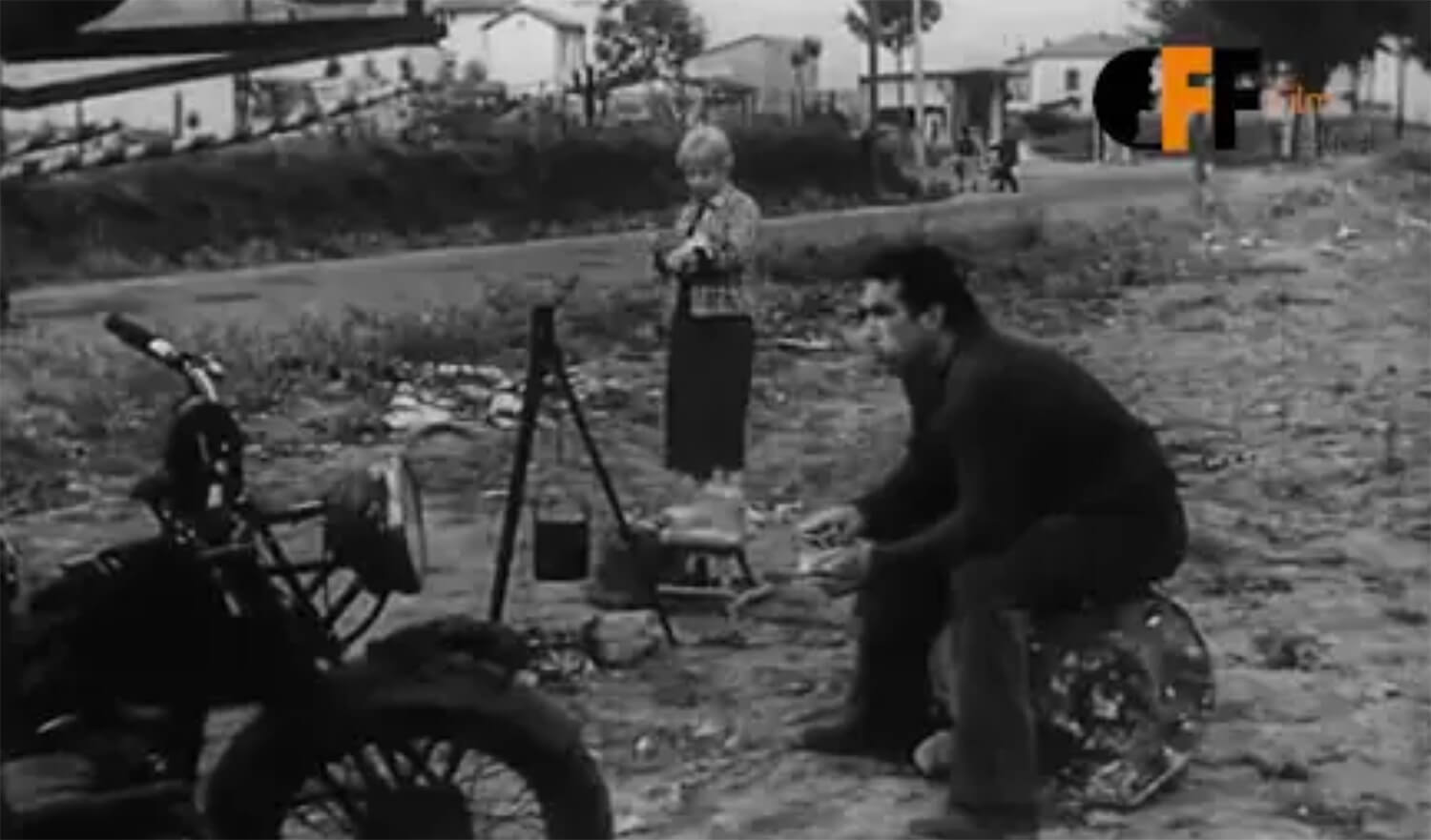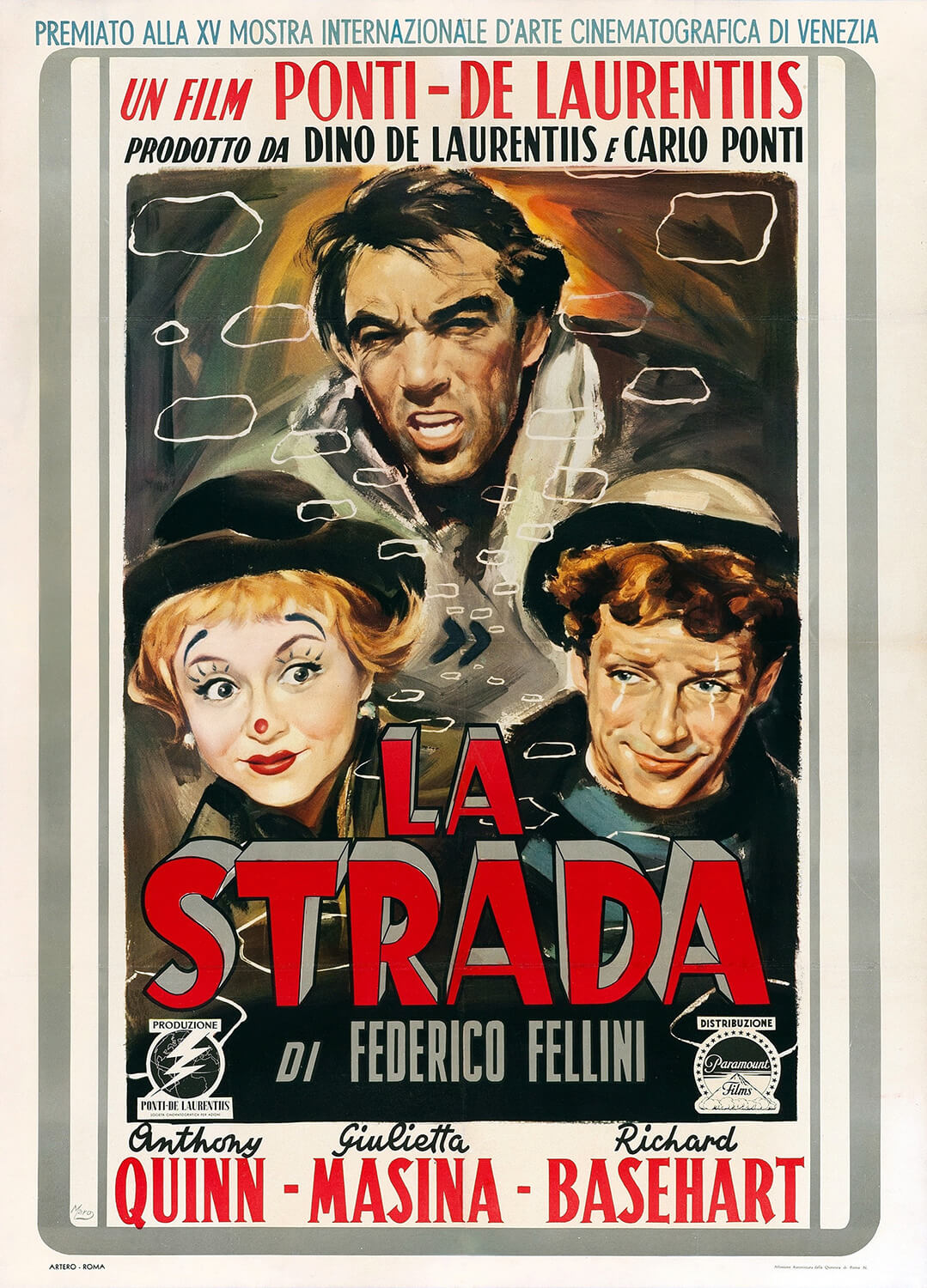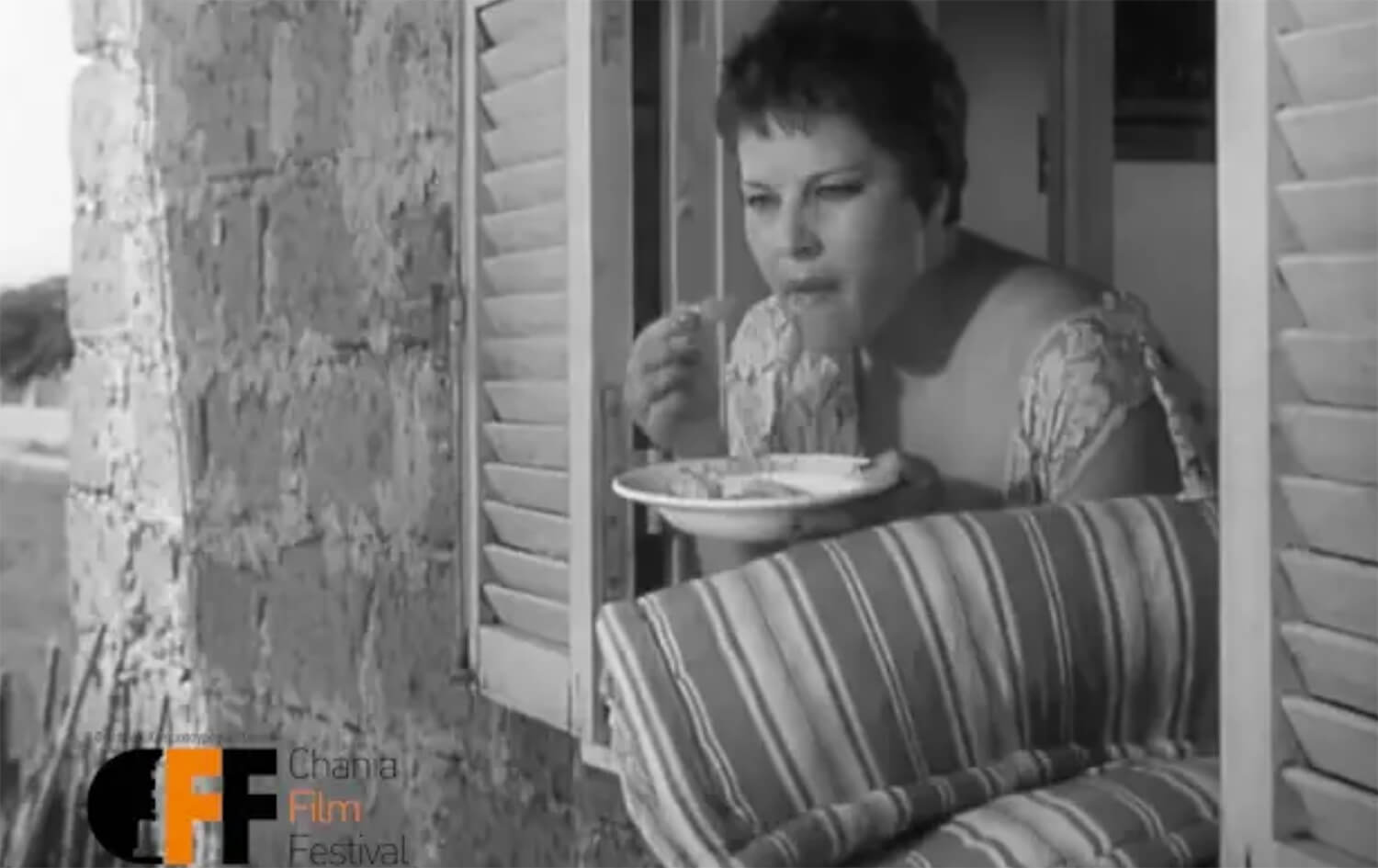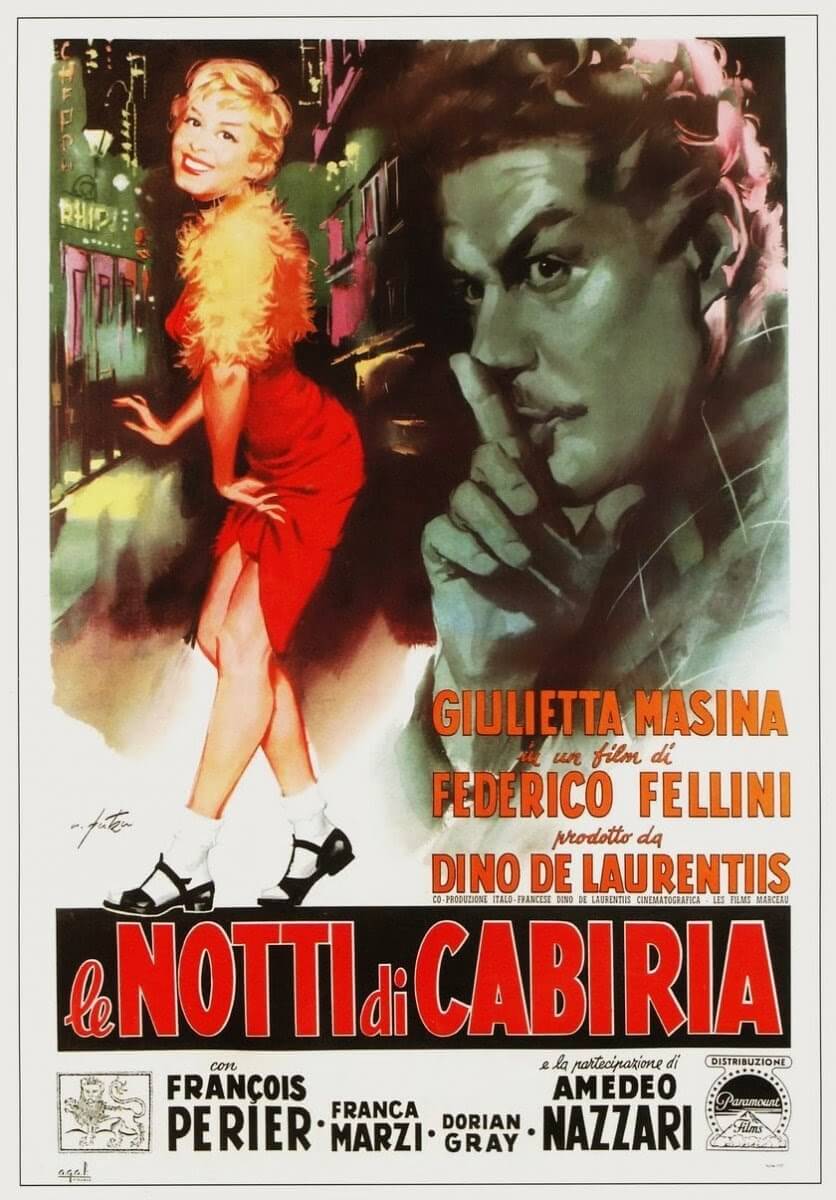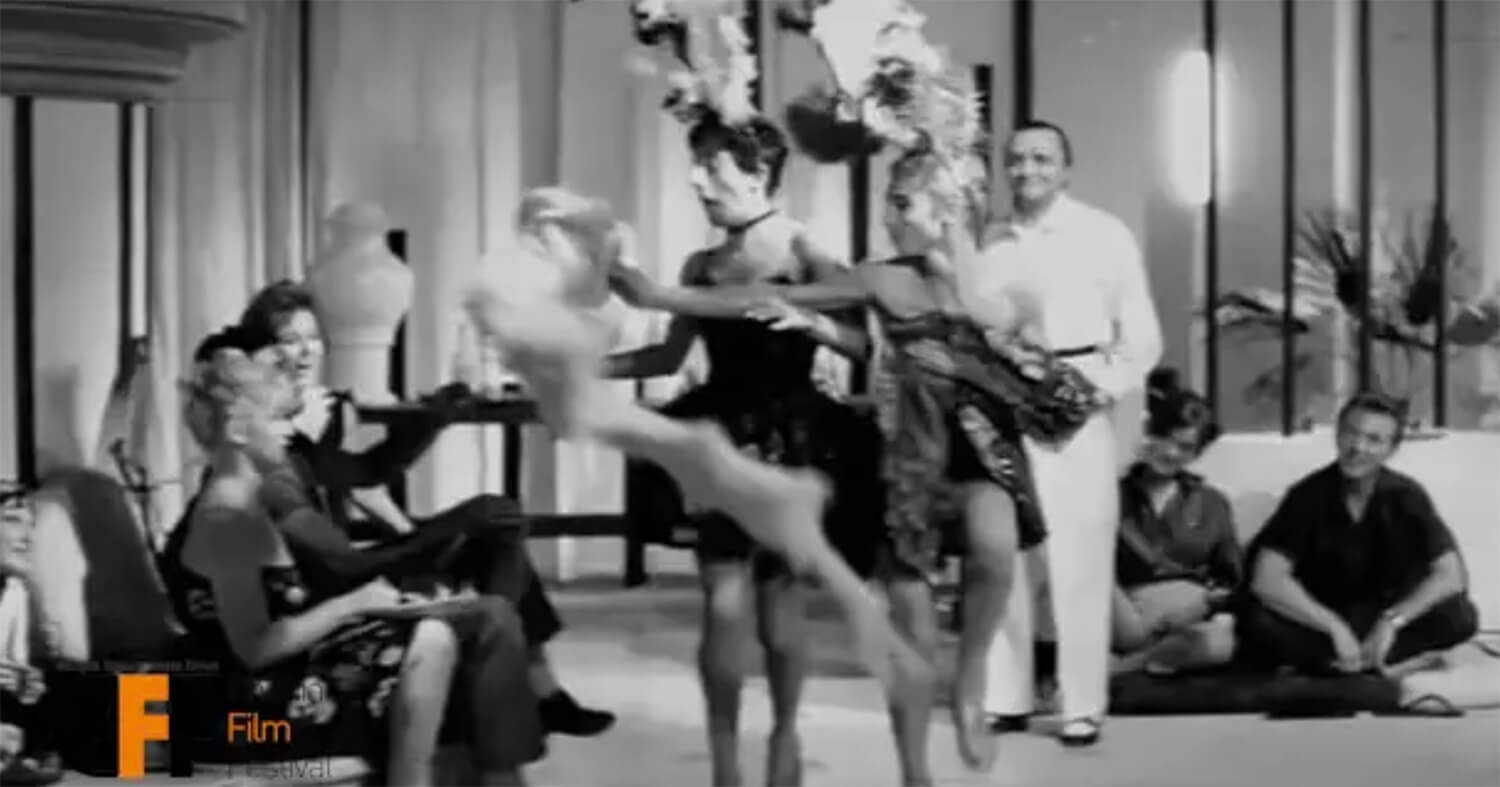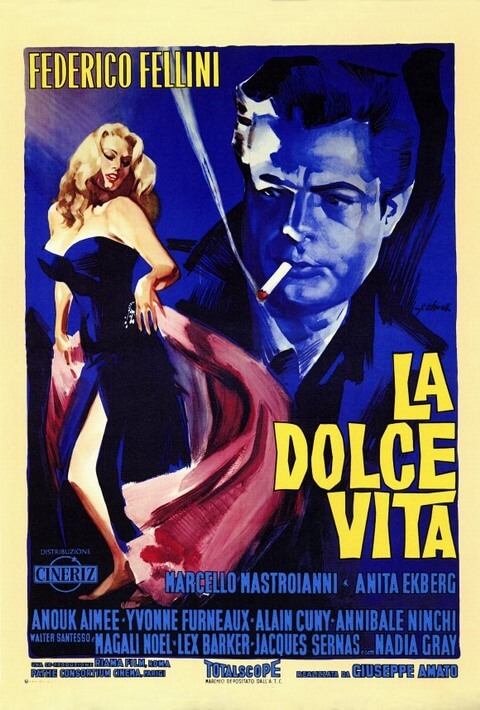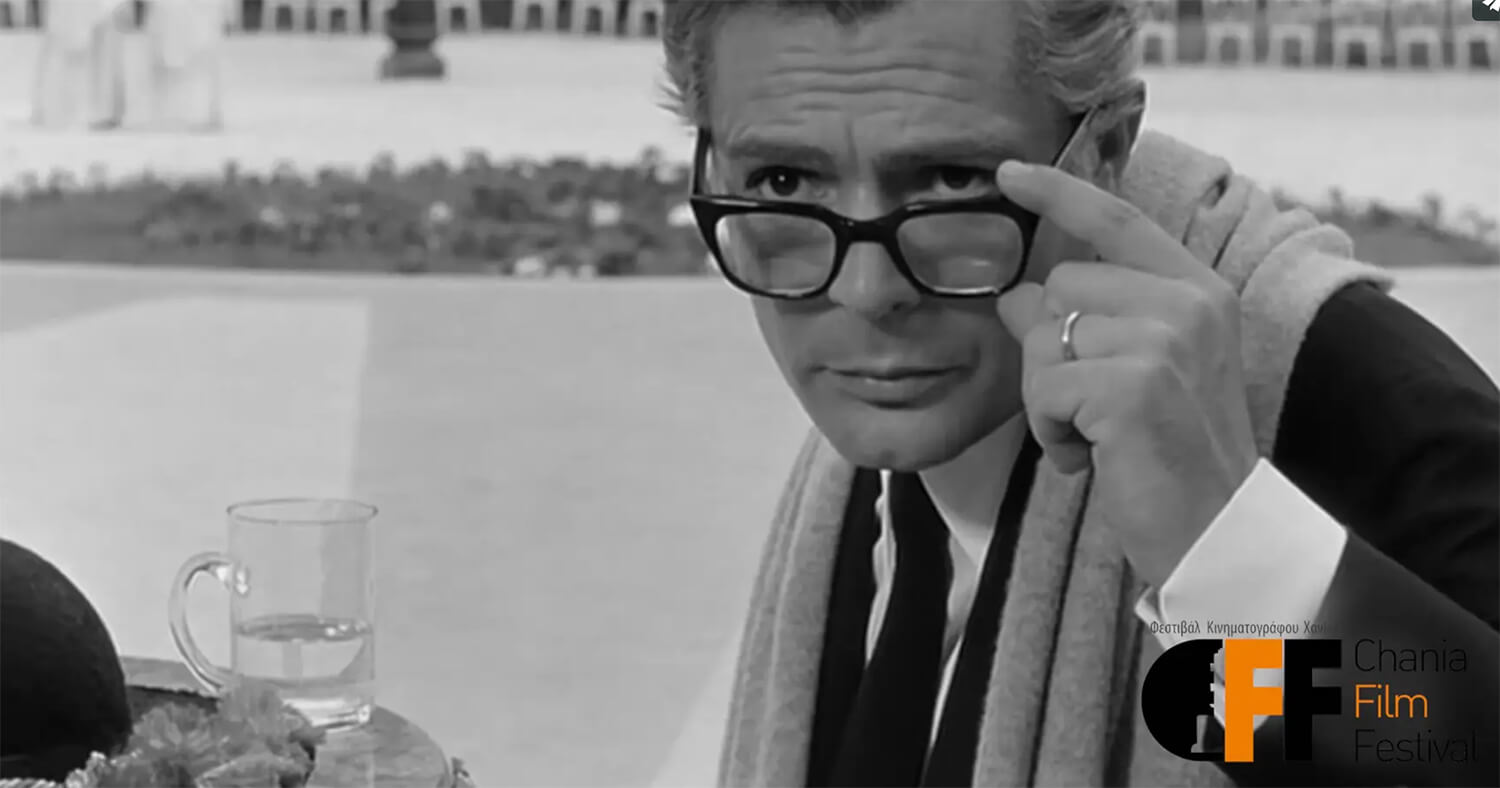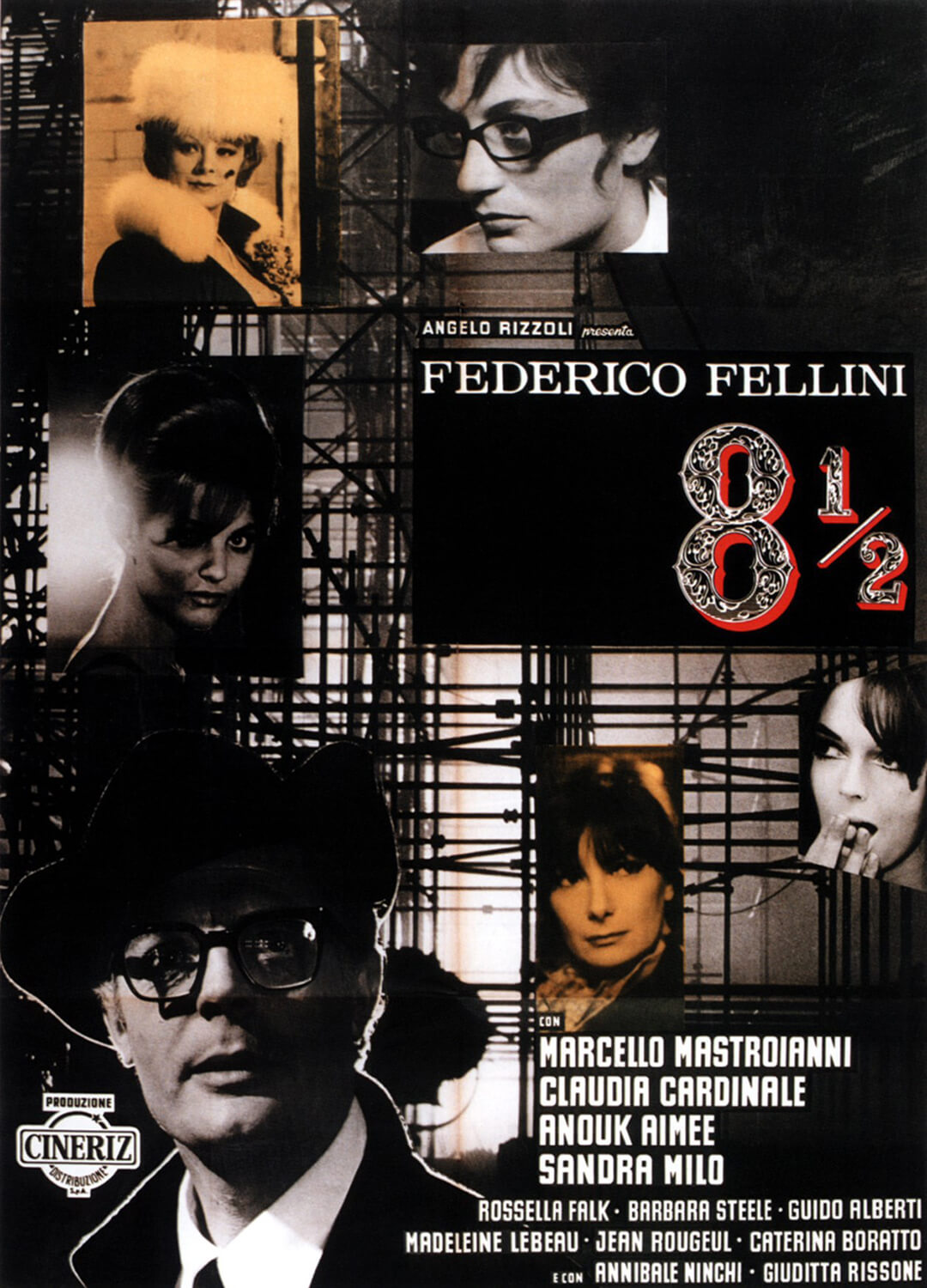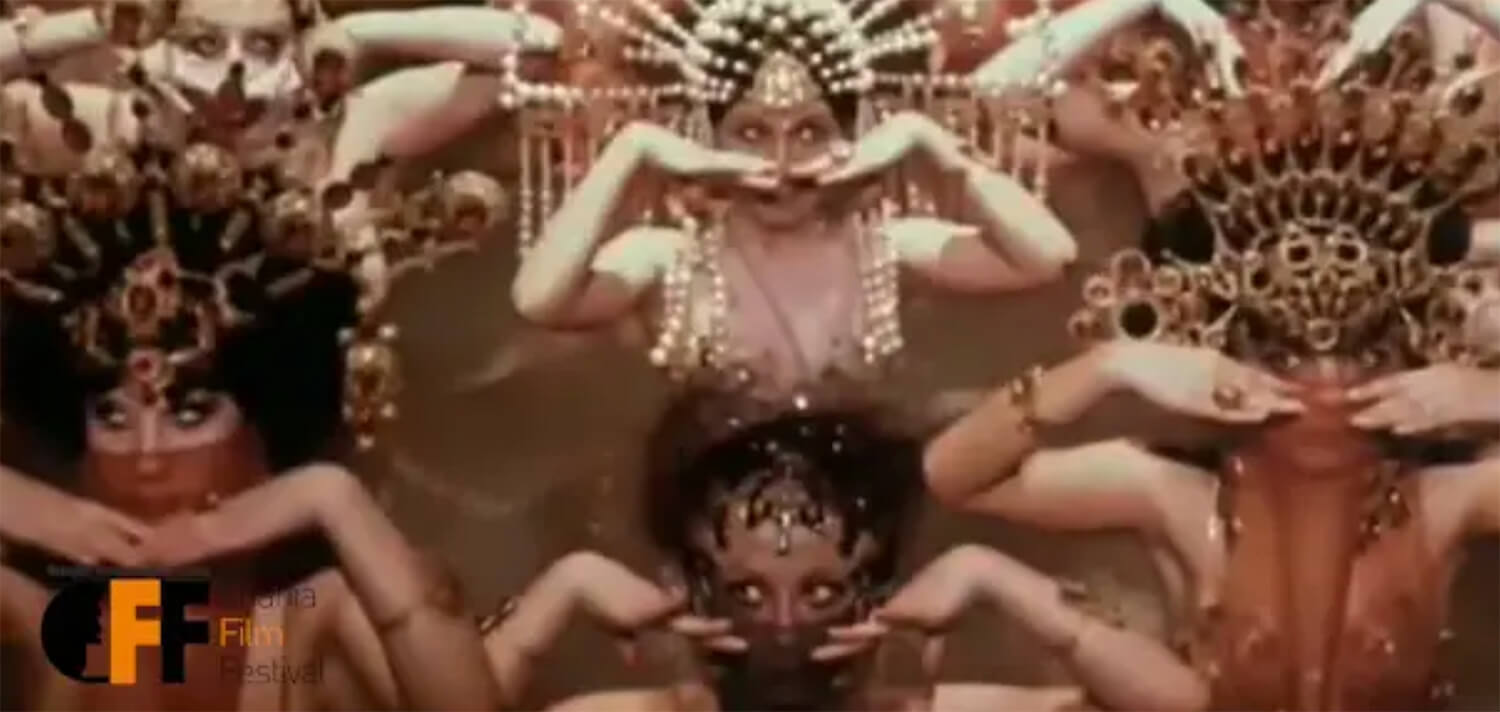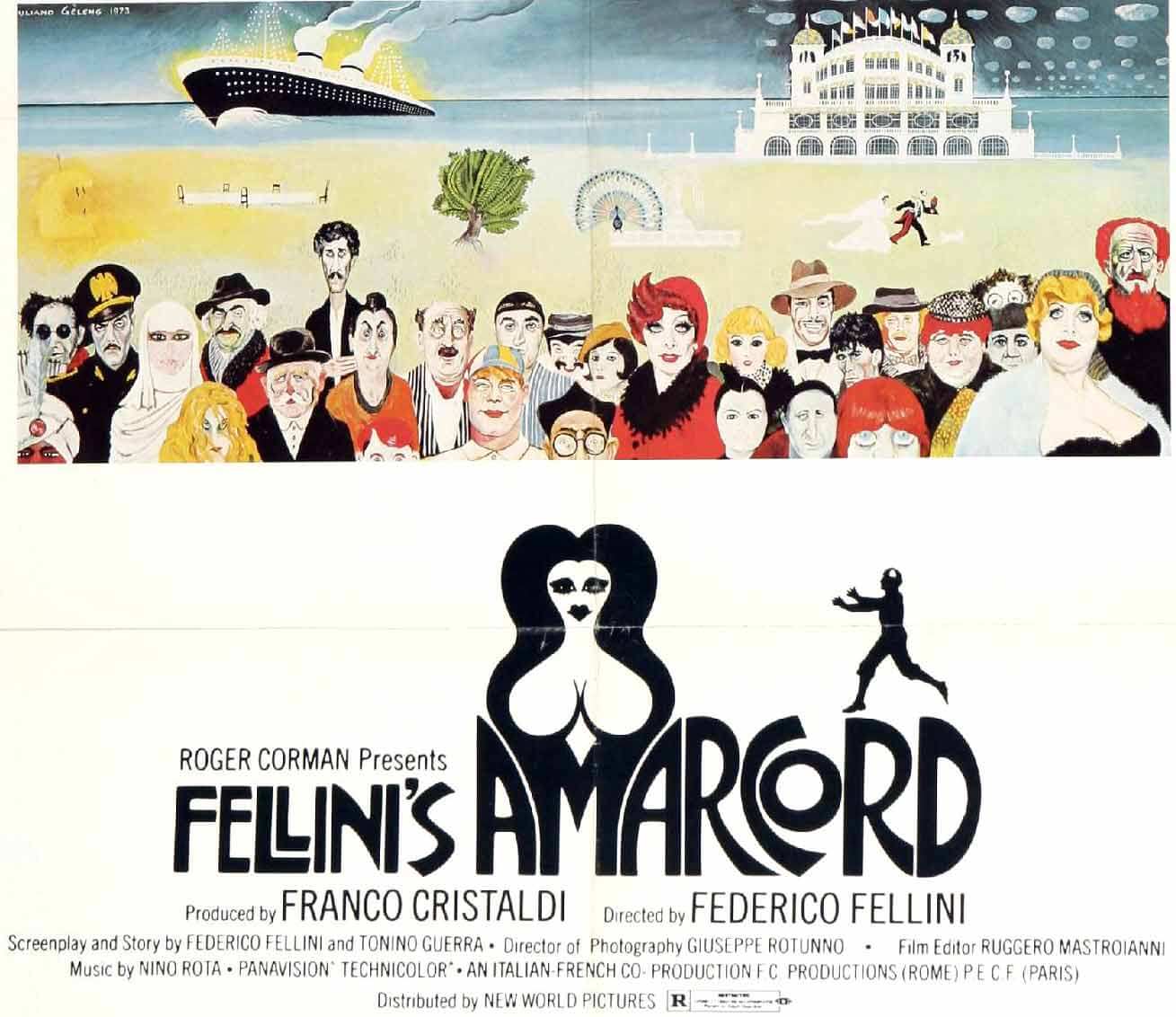One Hundred Years of Fellini (1920 - 2020)
in Fellini's way of "imagining everything"
Federico Fellini was born in Rimini, Italy on January 20, 1920. He was an ingenious Director, who created, through his 27 films, a unique cinematic world of his own, transcending forms and rules. The big screen owes him images of rare beauty, taken from the talent of a charismatic folk poet. He was an Intellectual who put his stamp on the social conscience, always ready to fight for his Art and his Ideas.
Italy this year, with on the occasion of the centenary of his birth, he proclaimed 2020 the "Year of Fellini", with a central slogan, in Fellini's way of "imagining everything." With 67 awards and 50 nominations at the biggest Film Festivals, Fellini made his country famous all over the world, as the country of "Dolce Vita". The centenary of his birth is celebrated with great events, concerts, exhibitions and screenings around the world, dedicated to his work.
The Chania Film Festival remembers five Cinematic Masterpieces bearing its signature.
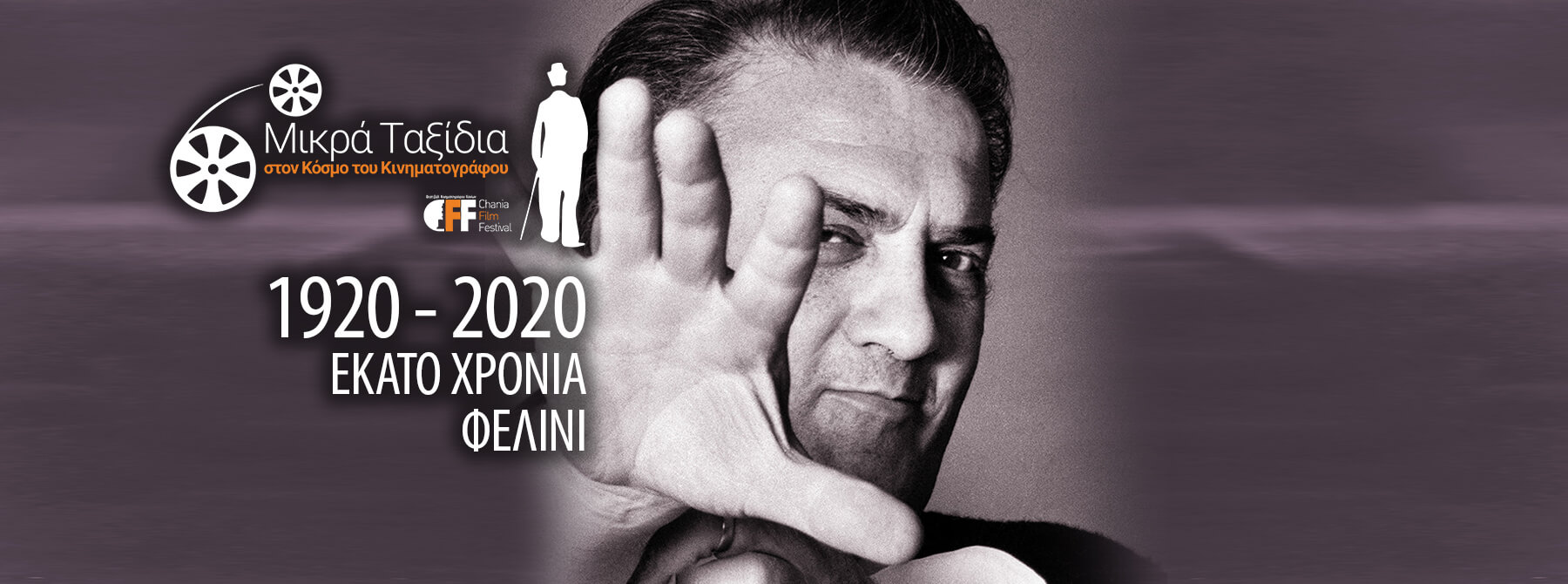
La Strada (The Road) 1954
The film La Strada is a neorealist drama of Italian Cinema, produced in 1954 under the direction of Federico Fellini. The script of the film was written by Fellini himself in collaboration with the Toulio Brushes and Eno Flaiano. The protagonists of the film are the Anthony Quinn and the Juliet Masina, who was also the director's wife. The film was awarded the Academy Award for Best Foreign Language Film in 1956, while the British Film Institute ranked it in the top ten of the list of the best films of all time.
Le notti di Cabiria (The Nights of Cabriria) 1957
Le notti di Cabiria is a 1957 Italian drama film, directed by Fellini, starring Juliet Masina and Amadeo Nazari. Based on a story by Fellini, the film tells the story of a prostitute, who lives in Rome and searches in vain for true love. In addition to the Best Actress Award at the Cannes Film Festival for Juliet Masina, The Nights of Cambiria won the 1957 Academy Award for Best Foreign Language Film, giving Italy the Oscar for the second year in a row.
La Dolce Vita (Sweet Life) 1960
La Dolce Vita is a black and white 1960s film written and directed by Federico Fellini and starring Marcello Mastrogianni, Anouk Aime, Anita Ekberg, Yvonne Fourno and many others. Sweet Life won many awards. He was awarded the Palme d'Or at Cannes in 1960. In 1961 he received an award from the New York Film Critics Circle, in the category of best foreign film. Also in 1961, he received three awards at the Sindacato Nazionale Giornalisti Cinematografici Italiani, for the first male role (Mastrogianni), for the best screenplay and for the best sets. Anuk Aime was awarded by Etoile De Cristal as best female actress. In 1962, the film received the Academy Award for Costumes.
8½ 1963
81/2 is a surreal tragicomic 1963 film, directed by Federico Fellini while the script is by Fellini, Eno Flaiano, Tulio Brushes, and Brunelo Rodi. Starring Marcello Mastrogianni plays a famous Italian director, Guido Anselmi, who suffers from drowned creativity as he attempts to direct a science fiction film. The film won the Academy Award for Best Foreign Language Film and the Academy Award for Best Costumes for a black and white film. Recognized as an avant-garde film and as a classic film, it ranks among the top ten on the list of the British BFI Film Institute. It is also in the collection of the Vatican's 45 best films made before 1995, the 100th anniversary of cinema. Today it is considered one of the best films of all time.
Amarcord (I Remember) 1973
The Amarcord is a 1973 satirical film, directed by Federico Fellini. It is a partially autobiographical story, starring Tita, a young teenager growing up among a "mosaic of eccentric characters", in the village of Borgo San Giuliano, located near the ancient walls of Rimini, in the fascist Italy of the 1930s. The film won the Oscar for Best Foreign Language Film, while it had nominated for two more Oscars, Best Director and Best Original Screenplay.
See Also
VIEW ALL -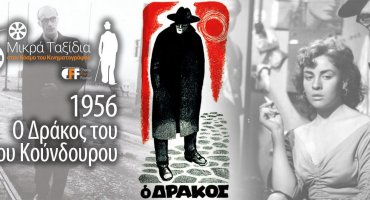 05 Ιουλίου 2021 by Chania Film Festival, in Μικρά Ταξίδια
05 Ιουλίου 2021 by Chania Film Festival, in Μικρά Ταξίδια1956 Ο Δράκος του Νίκου Κούνδουρου
Με αυτή την ταινία ο ελληνικός κινηματογράφος πέρασε από την Προϊστορία στην Ιστ...READ MORE +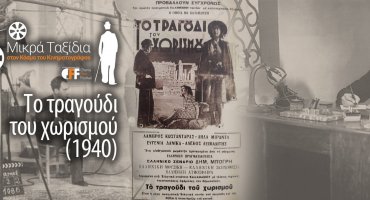 28 Ιουνίου 2021 by Chania Film Festival, in Μικρά Ταξίδια
28 Ιουνίου 2021 by Chania Film Festival, in Μικρά ΤαξίδιαΤο τραγούδι του χωρισμού (1940)
«Το τραγούδι του χωρισμού» είναι η πρώτη σύγχρονη ομιλούσα ταινία, της οποίας ολ...READ MORE + 22 Ιουνίου 2021 by Chania Film Festival, in Μικρά Ταξίδια
22 Ιουνίου 2021 by Chania Film Festival, in Μικρά ΤαξίδιαΜουσείο Μελιέ. H Μαγεία του Σινεμά
«Ποιός είναι λοιπόν ο άνθρωπος στην εποχή μας που θα μπορούσε να ζήσει χωρίς παρ...READ MORE +

